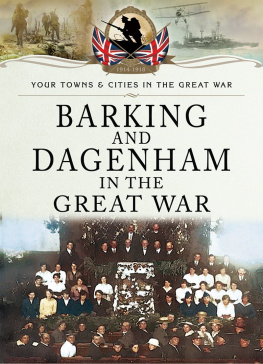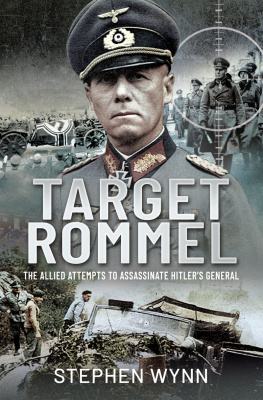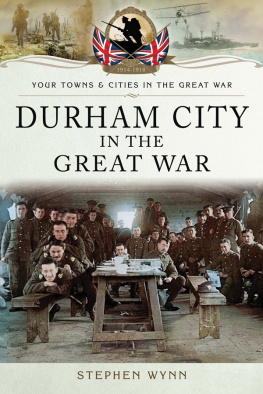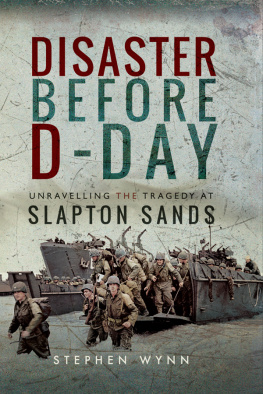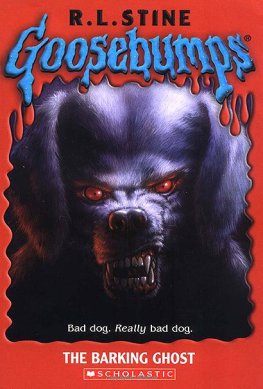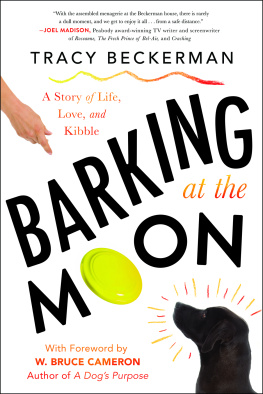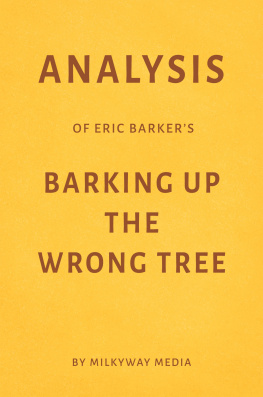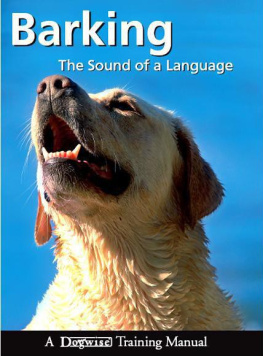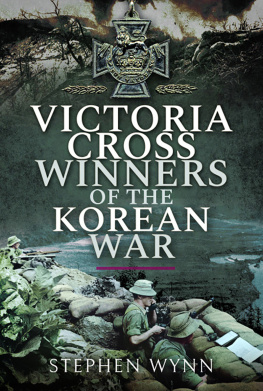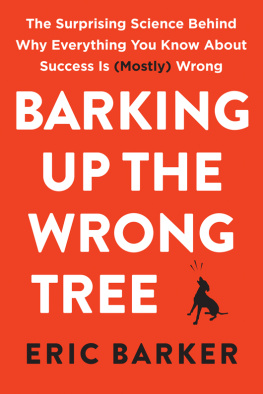Pagebreaks of the print version

Your Towns and Cities in the Great War
Barking and Dagenham in the Great War
Your Towns and Cities in the Great War
Barking and Dagenham in the Great War
Stephen Wynn
First published in Great Britain in 2019 by
Pen & Sword Military
An imprint of
Pen & Sword Books Ltd
Yorkshire Philadelphia
Copyright Stephen Wynn, 2019
ISBN 978 1 47383 415 6
eISBN 978 1 47386 538 9
Mobi ISBN 978 1 47386 537 2
The right of Stephen Wynn to be identified as Author of this work has been asserted by him in accordance with the Copyright, Designs and Patents Act 1988.
A CIP catalogue record for this book is available from the British Library.
All rights reserved. No part of this book may be reproduced or transmitted in any form or by any means, electronic or mechanical including photocopying, recording or by any information storage and retrieval system, without permission from the Publisher in writing.
Pen & Sword Books Limited incorporates the imprints of Atlas, Archaeology, Aviation, Discovery, Family History, Fiction, History, Maritime, Military, Military Classics, Politics, Select, Transport, True Crime, Air World, Frontline Publishing, Leo Cooper, Remember When, Seaforth Publishing, The Praetorian Press, Wharncliffe Local History, Wharncliffe Transport, Wharncliffe True Crime and White Owl.
For a complete list of Pen & Sword titles please contact
PEN & SWORD BOOKS LIMITED
47 Church Street, Barnsley, South Yorkshire, S70 2AS, England
E-mail:
Website: www.pen-and-sword.co.uk
Or
PEN AND SWORD BOOKS
1950 Lawrence Rd, Havertown, PA 19083, USA
E-mail:
Website: www.penandswordbooks.com
Foreword
Stephen is a happily retired police officer having served with Essex Police as a constable for thirty years between 1983 and 2013. He is married to Tanya who is also his best friend.
Both his sons, Luke and Ross, were members of the armed forces, collectively serving five tours of Afghanistan between 2008 and 2013. Both were injured on their first tour. This led to Stephens first book; Two Sons in a Warzone Afghanistan: The True Story of a Fathers Conflict, which was published in October 2010.
His teenage daughter, Aimee, currently attends one of the districts secondary schools. Both of his grandfathers served in and survived the First World War, one with the Royal Irish Rifles, the other in the Mercantile Navy, whilst his father was a member of the Royal Army Ordnance Corps during the Second World War.
Stephen collaborated with one of his writing partners, Ken Porter, on a previous book published in August 2012, German POW Camp 266 Langdon Hills, which spent six weeks as the number one best-selling book in Waterstones, Basildon between March and April 2013. Steve and Ken collaborated on a further four books in the Towns & Cities in the Great War series by Pen and Sword. Stephen has also written other titles in the same series of books, and in February 2017 his book, The Surrender of Singapore Three Years of Hell 1942-45, was published. In March 2018, this was followed by Against All Odds: Walter Tull the Black Lieutenant .
Stephen has also co-written three crime thrillers, which were published between 2010 and 2012, and centre round a fictional detective named Terry Danvers.
Introduction
In writing about Barking and Dagenham in the Great War, I have tried to draw a balance between the war as a whole, on the world stage, in the form of a year by year snapshot of the major events or battles of the war, and then compare those events with everyday life in the towns of Barking and Dagenham.
I believe that for me to provide those two distinctions is important for the book to work. It wouldnt be right just to write about the two towns in isolation without looking at the war as a whole, because the two are connected on so many different levels.
Life in both Barking and Dagenham at the beginning of the First World War was much the same as it was for many of the nations towns and villages. Although war had begun and the nation was fighting for its very survival, everyday life on the home front was still going on as normal as it was possible to in the circumstances. People were still going to work, children to school, and many of the men, especially the younger ones, were going off to fight in the war. Hospitals were springing up all over the place, to deal with the influx of wounded Allied soldiers, who had been returned to the UK to have their injuries treated.
The nearest census to the outbreak of the war was taken in 1911 and records that the population of Barking in its entirety, was 37,590, and that of Dagenham, was much lower, at just 9,641.
Both towns at the time were mainly rural areas, with labourer related jobs being the biggest employers for men looking for work. The work was hard and the days were long, with men usually toiling from dawn to dusk, which meant longer days in the spring and summer than it did throughout the rest of the year.
Here are a few examples of the type of work undertaken by people living in Barking and Dagenham at the time of the 1911 census. These roles wouldnt have changed much by the start of the First World War.
I will start with the residents of Dagenham, men first. There were a total of 711 men who were engaged as labourers, but this covered different types of work ranging from farm work to building work, as both required general labourers. There were 157 men who were clerks, which, among others, included registration clerks, bank clerks, a civil servant assistant clerk and insurance clerks. Seventy-one were gardeners of different types. Forty-nine were bookkeepers. There were thirty men who were farmers, with a further twenty-three men working as butchers. Six were teachers. Three men were serving soldiers, one of whom was Harry Roseland Rodman, living at the Chequers Inn, Ripple Road, Dagenham. He was one of the first local men to be sent overseas and arrived in France on 17 August 1914. One man, Charles Samuel Cottrell, was a tailor who specialised in coat-making. Arthur Deeks, who was 46 years old was employed as a butler.
The census lists 157 of the women who worked as being in domestic service, as cooks, chambermaids and nannies. There were twenty-three women employed as nurses, many of whom worked at the Isolation Hospital at Rush Green. There were also a few who were what were termed as Monthly Nurses, nurses who looked after a mother and her baby, in the weeks following the birth of the child, the postnatal period. The teaching profession employed fifteen women from the town.
Moving on to Barking and the type of work the men and women of the town undertook.
A large number of men (2,355) were recorded as labourers. There were 539 men who worked as clerks of some description, 97 men who worked as butchers, 53 who were employed as gardeners, 33 who worked as teachers, 27 men who were farmers, and 11 who were already serving soldiers.
There were 454 women of all ages, employed as domestic servants. Ninety-eight women worked as teachers, but this category included piano teachers as well those teaching in schools. Fifty women were employed as nurses.

